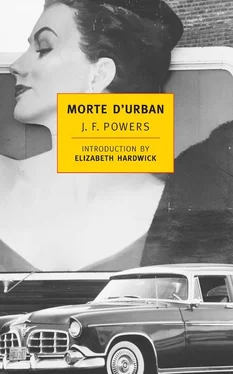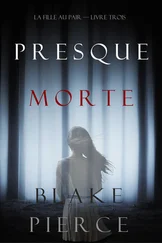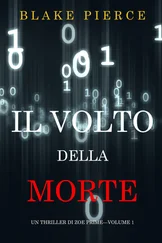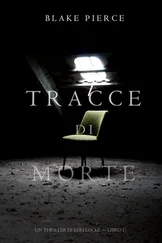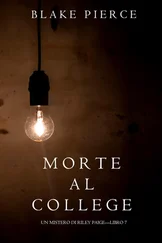“Suppose it’s nice and warm where you are.”
“It gets pretty chilly here sometimes,” said Father Urban. This, though untrue, seemed the decent thing to say.
“You’re on a hill, don’t forget. You’re getting the same wind we are.”
“I didn’t think of that.” Father Urban, not wishing it to be thought that he’d forgotten them, inquired after the less fortunate ones at home, asked that they be given his best, and then he said good-bye to Wilf.
Later that week Father Urban arranged for Johnny to drive Jack over for the opening night of the mission (not to preach, of course). It was nice for Jack, just being there, away from Wilf and the Hill for a few hours, and he made a third for benediction. Nobody preached on opening night, Johnny announcing that Father Urban begged the people to pray for the success of the mission, since their prayers were much more powerful than any words of his, after which came the rosary led by Jack, who had trouble with the mike, and then benediction by Father Urban wearing a cope by Blaise of Bruges. Attendance was excellent. Even though Father Urban hadn’t been heard on the first night, attendance was better on the second. Thereafter, and this was the mark of a mission preached by Father Urban, it got better and better. On Friday night, closing night, there was standing room only in the church. This on a night when the stores stayed open until nine! Jack was on hand again, and somebody in Men’s Club had considered it advisable to bring in a tape recorder. The last night of the most successful mission anybody could remember began with the rosary (Johnny), was followed by benediction (Jack), and closed with Father Urban preaching his heart out.
“Each soul, then, a little world of its own, with its peaks and valleys, its prairies, rivers and lakes, and sometimes, yes, alas, its dismal swamps, its lightless deeps. Special, unique, known only to God, for better or worse. Only God knows the true nature of the spiritual universe that is this parish, of the little world that is your soul. God alone, the Great Cartographer, could draw it down to the tiniest detail. And if He did, and perhaps He does, what would we see, you and I? A world where God would care to dwell? Or a world too hot, too cold, too wet, too dry? Next to God, we are the best judges of that, you and I. Yes, for you cannot know my soul, and I, though skilled in this and skilled in nothing else, can only guess at yours. But as a priest, as one of God’s poor surveyors, I beg you keep your rivers and lakes unpolluted. If swamps there be, drain them, for God’s sake and yours, and do not wait. Where swamps were before, let there be gardens and orchards. Gardens and orchards and parks! How does your garden grow? With the silverbells and cockleshells of faith, hope, and charity? Rid your gardens of the ragweed of covetousness, the dandelions of pride, the crabgrass of indifference! And clear your orchards of the rusty tin cans and broken glass of avarice, the old rubber tires of self-indulgence! If necessary, plow up your gardens and orchards! Plant your gardens and orchards with the good seed and the green saplings of pious works, attendance at Holy Mass, regular confession, frequent reception of the Sacrament of Sacraments! Do these things, and leave the rest to God! Do these things, and the warm sun of God’s merciful love will shine upon you and yours! Do these things, and the gentle rain of God’s loving mercy will fall upon you and yours! Now and for all time! Now! Forever! If! ”
Forty-five minutes earlier, Father Urban had begun with those three little words, treating them, he said, as an etymologist might—“Now don’t let that scare you, it only means wordsmith”—and, having made no great demands on the three little words then, he’d left them, had entirely forgotten them, so it must have seemed to the congregation, but he hadn’t. In the end, he’d come back to them, and those three little words, two shouted and one whispered, had gone off like fireworks, like two bombs and a pinwheel. And thus another mission had ended — almost.
Still in the pulpit, Father Urban, eloquent in silence, stared out over the heads of the congregation and saw what nobody else in the old church could see so well, the clock on the choir loft, which said eight-forty. Making the sign of the cross, which rippled through the congregation, he turned and, for a moment, was invisible to the people. When he next appeared to them, he was down on their level, leaving the pulpit, walking, kneeling before them — for this purpose a prie-dieu had been placed in a central position in the sanctuary. After an interval noticeably longer than on previous nights, he rose, genuflected before the main altar, and, head down, made his way slowly to the sacristy. Then, when he was again invisible to them, and only then, did the people begin to stir in the pews.
The mission had ended. Many, however, had risen not to leave but to kneel and pray, Father Urban knew, and were now impeding the progress of others trying to leave and putting them in a bad light for trying to do so. This was the one thing about his missions (and there was always much more of it on closing nights) that troubled him. Why should the very first fruits of his week’s sowing be confusion, self-righteousness, and animosity in the pews?
Katie had called during dinner to say that Mrs Thwaites wished to see him as soon as possible, and so, when he’d got out of his surplice and cassock, and Jack had got out of his, they drove out to Lake Lucille. When they arrived at the house, Father Urban suggested that Jack remain in the car. “I don’t know what’s on her mind, and you’ll be warmer here with the heater on. You can listen to the radio while I’m gone.”
In Mrs Thwaites’s room, the TV sets were off, the lights were on, and Dickie, Mrs Thwaites’s son, was present. Father Urban sensed that Dickie, whom he’d met on another occasion, was to be the subject of the conversation — and hoped he wasn’t thinking of going into the Clementines. Dickie, who had been in and out of too many orders already, according to Monsignor Renton, was now running a book and church-goods store over in Ostergothenburg, an establishment called the Eight Seasons. When Father Urban had asked why it was called that, Dickie had replied, “Why, because of the eight seasons, of course.” “ What eight seasons?” “Why, the eight seasons of the church year, of course.” Father Urban hadn’t cared for that, not a-tall, but even without that, he wouldn’t have cared for Dickie. The boy, as his mother fondly referred to him, was forty-six, fat in the middle and soft all over, with a bottlenose (from his father, to judge by photographs in Mrs Thwaites’s room), and lots of hair (this from his mother) swept up in a gray mane that might have looked all right on the conductor of a symphony orchestra. No, Father Urban just couldn’t see Dickie Thwaites, with his record and his hair, even as a Clementine brother, and so he was alarmed when he heard Mrs Thwaites say:
“The boy’s giving up the store.”
“I’m not so sure,” said Dickie.
“It’s well to be sure,” Father Urban said, in case they were talking about Dickie’s vocation. “Were you, perhaps, thinking of something else?”
Dickie, who was sitting on a big footstool, with his hands all but lost in his hair, said, “This is the century of the cad.”
Father Urban thought this over for a moment, and then, to Mrs Thwaites, he said: “I take it this is why you’ve asked me here.”
“Yes, I thought you might be able to tell the boy what to do.”
Father Urban glanced at Dickie.
Dickie looked up from the floor at which he’d been staring. “Of course, I’d be interested in anything you might have to say, Father.”
Читать дальше
